As the child of two loving mothers and director of Australian documentary Gayby Baby, filmmaker Maya Newell has heard many stories from other children of same-sex parents about feeling left out at school.
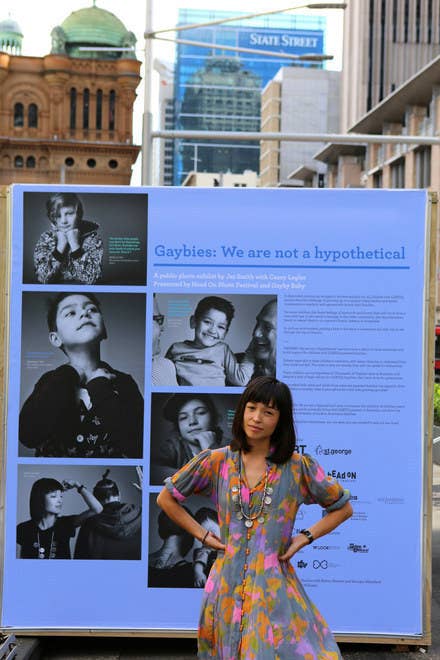
In particular, Newell told BuzzFeed News, she is drawn to the heartwarming story of a "gayby" named Kate.
“She did rowing at school, and had two dads and a mum, and every week, right up until Year 10, she would ask her dad to stand on the other side of the river, separate to where the other parents would watch, because she didn’t feel comfortable being out at school,” Newell said.
After hearing a teacher stop a student from saying ‘That’s so gay’, it occurred to Kate for the first time that people at school might actually be supportive of her family.
“It wasn’t until that moment that she felt she could do this at school and it wouldn’t be a big deal. She remembers the moment in their family when she asked her dad to stand on the other side of the bank with everyone else,” said Newell.
Inspired by the stories of Kate and the four children of same-sex parents who appear in her documentary Gayby Baby, Newell has worked with producer Charlotte Mars and a number of teachers and education experts to make a school resource on diverse families.
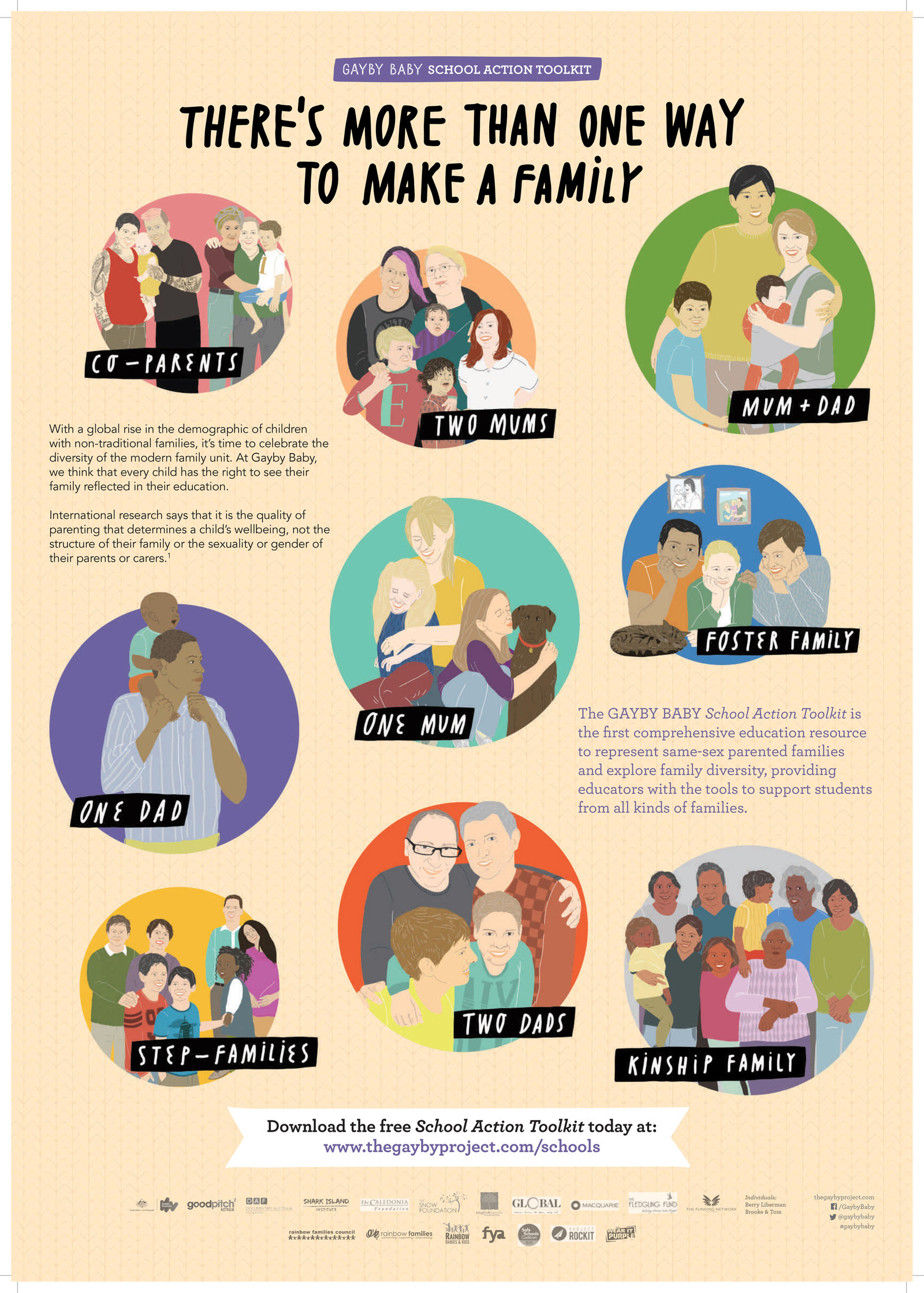
The Gayby Baby School Action Toolkit is aligned to the Australian curriculum and offers programs for primary (years 5-6) and secondary (years 7-10) schools.
It features lesson plans based on the four children who appeared in Gayby Baby – Ebony, Graham, Gus and Matt – as well as statistics and information on non-nuclear families in Australia and classroom activities.
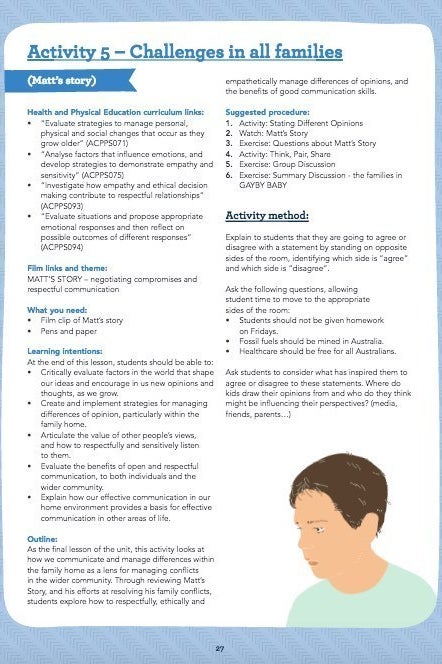

A lesson plan from the Toolkit.
This week, 8,000 family diversity posters were sent out to every primary and secondary school in Australia.
The resources also include colouring in worksheets, with portraits of different types of families drawn by illustrator Julia Krusch.
The lesson plans are free to download from the Gayby Baby website.
Census data shows as many as 29% of Australian children are raised in families that fall outside the nuclear norm.



Many children are raised by single parents, some in blended families, others by same-sex couples.
“We’re really proud it’s the first resource to represent same-sex parented families, but really it’s a reflection of the changing demographic of students’ families in schools everywhere” said Newell. “Let’s catch up with what the reality looks like in our society.”
Hot on the heels of the furore over the Safe Schools Coalition earlier this year and the controversy surrounding the Gayby Baby film in 2015, Newell said she is ready for any criticism that might come her way.
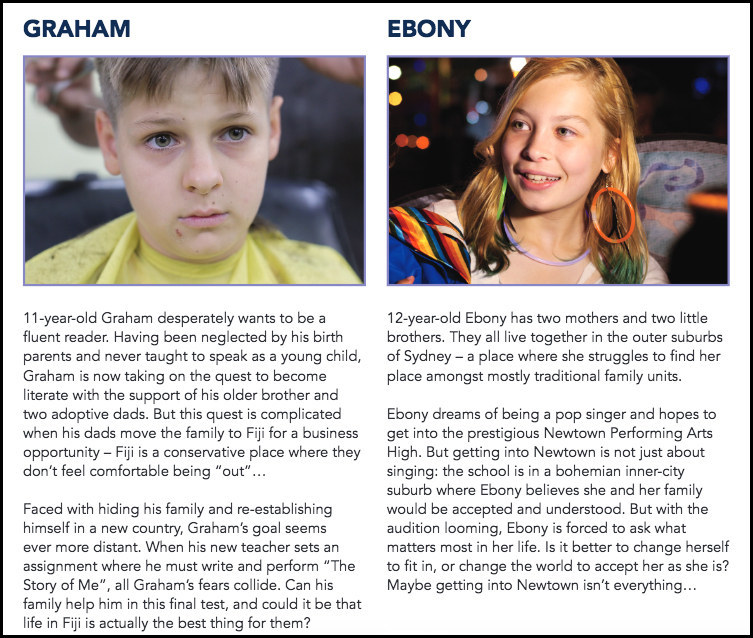
“If all the messages supporting LGBT youth in schools have been torn down, we need something,” she said.
“This is a safe and easy way to introduce LGBT themes into school in a way that is talking about families that already exist. It’s not about sexuality, it’s about kids’ families who are already out there.”
In 2015, the Gayby Baby film was temporarily banned from being shown in NSW classrooms by education minister Adrian Piccoli.
Newell told BuzzFeed News she has had a number of “sensitive but really positive conversations” with the NSW department of education in recent months.
“Let’s face it, launching an education resource when your film is banned during school hours is problematic,” she said. “So we had to rectify that situation, and I’m proud to say the department of education is really supportive of the resource.”
The Victorian government has publicly lent its support to the School Action Toolkit. The NSW department of education issued a statement to BuzzFeed News stating they do not endorse externally produced resources.
The resources are scattered with testimonials of children from diverse families, who say it would have changed their lives.
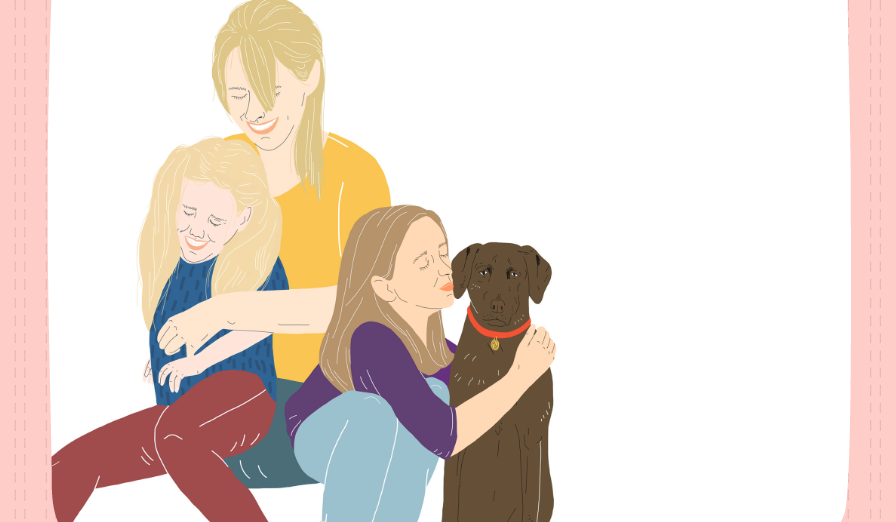
13-year-old Adrian wrote that his mum passed away when he was five, and he was raised by his dad. “In school we always watch films with families that only have mums and dads, and that’s sometimes hard for me."
“If my type of family had been known about at school, I wouldn’t have had to lie,” wrote Jesse, 23. “I wouldn’t have had to make up stories about what my family was and who the other woman was who was living with us. School would have been easier.”

